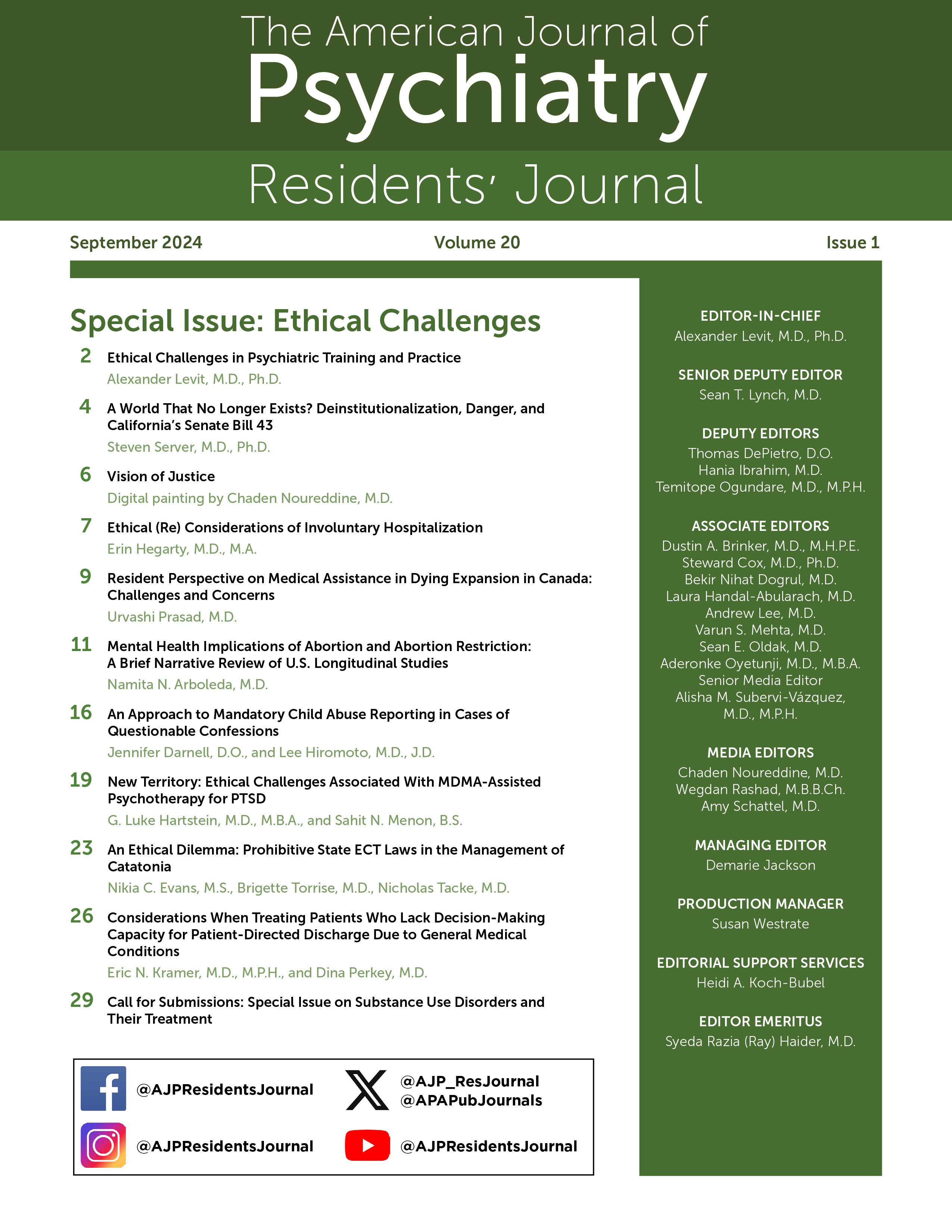Involuntary psychiatric holds, namely Welfare and Institutions Code 5150 in California, where patients who are deemed to be a danger to themselves, a danger to others, or gravely disabled due to a mental illness, may be used in such cases to prevent patients from leaving the hospital (
14). One study found that up to 20% of these holds were used to prevent patients who were medically incapacitated from PDD (
5). According to a 2016 review, every state has some form of an emergency involuntary psychiatric hold, allowing patients to be held involuntarily (
15). Five states allow involuntary psychiatric holds to be placed on individuals deemed to be a danger to themselves or others without specifying whether the danger is a result of a mental illness (
15). This can be controversial, however, because often in these cases, the impairment is not to the result of an underlying mental illness. This leads to the question of what is a mental illness? Dementia? Delirium? Substance use? Because these conditions are in DSM-5, should they be considered mental illnesses? In California, for example, although there is a debatable gray area, the general sentiment regarding the Lanterman-Petris-Short Act (legislation outlining involuntary mental health treatment in California) is that it is not intended for patients with many of these types of conditions who do not require psychiatric hospitalization (
16). However, this distinction was made a bit murkier in a recent court case that allowed mental health conservatorship of a patient with a diagnosis of dementia (
17). Furthermore, recent changes to California law have expanded the definition of grave disability to include conditions resulting from a substance use disorder (
18). If the law continues to expand the definition of grave disability to include other causes of altered mental status, this may increase the number of involuntary psychiatric holds and, in turn, psychiatric hospitalizations. It is questionable whether patients with certain neurocognitive disorders would benefit from inpatient psychiatric hospitalization or whether this would cause further diversion of resources and psychiatric beds in an overcrowded system. The use of involuntary psychiatric holds on these patients in our institution often leads to delays in discharge resulting from communication delays and difficulty securing nonpsychiatric placement for patients on involuntary psychiatric holds. Additionally, providers could potentially be held liable for inappropriate use of involuntary psychiatric holds if they are used on patients whose impairment is clearly due to a general medical condition. Involuntary psychiatric holds also can have implications for firearm ownership; in California, there is a mandatory probationary period for owning a firearm (
19). Some individuals may also be worried that an involuntary psychiatric hold would affect potential job prospects, and others may experience trauma because of the stigma associated with involuntary psychiatric holds (
20). This also places additional stress on mental health professionals, diverting resources away from where they are needed. Ultimately, if an involuntary psychiatric hold is the only tool available to hold a patient who lacks capacity for PDD, in order to abide by the ethical principle of nonmaleficence, there is no reasonable alternative. However, this may not be possible in other institutions. In some states, police are the only ones who can initiate involuntary psychiatric holds (
15). There should be additional tools in place to allow such patients to remain hospitalized without the need for an involuntary psychiatric hold.
